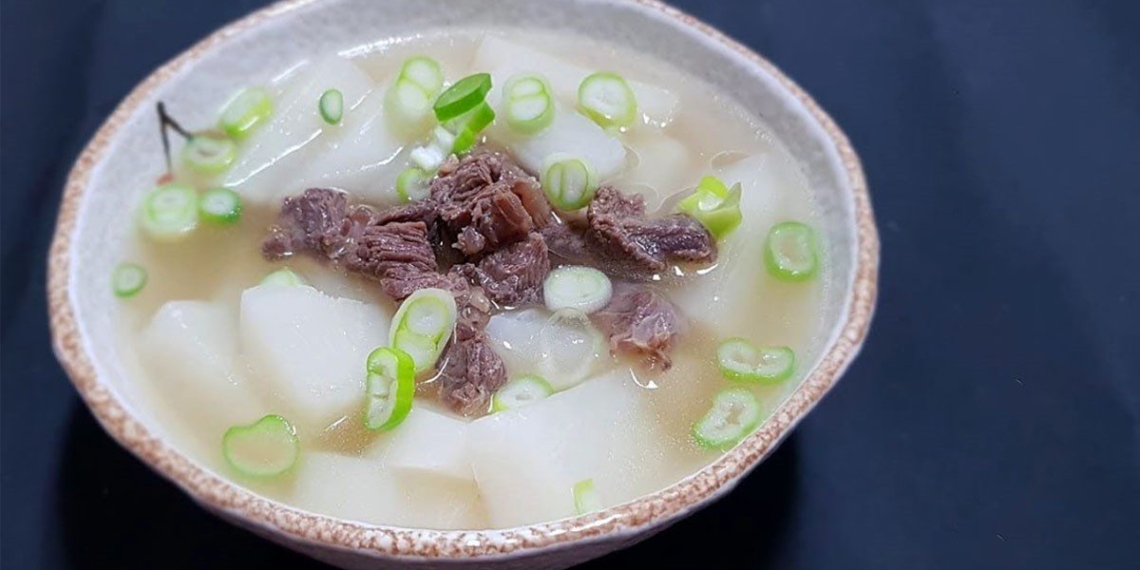-
Preparation
10 minutes
-
Processing
30 minutes
-
Difficulty
Easy
Korean beef radish soup is an easy-to-make soup that is delicious and aromatic. Not complicated, but it carries the cultural essence of the people of the Land of Morning Calm. Let’s get cooking and prepare this dish for the family to enjoy!
Ingredients for Korean Beef Radish Soup For 3 people
Beef 100 gr White radish 1 piece Green onion 1/2 stalk White wine 1 teaspoon Soy sauce 1/2 teaspoon Salt A little
How to choose fresh and delicious ingredients
How to choose fresh beef
- Fresh and good beef usually does not have a dark red color but will have a bright red color, the fat is yellow, the meat fibers are small, and the meat is soft and does not stick when pressed. It should not have any unpleasant smell.
- Avoid buying beef that has a pale green color, with white spots like rice grains on the meat fibers as it may be infected with harmful parasites. Additionally, the fat should not be dark yellow, and if the meat is slimy and sticky when pressed, it indicates that the beef is not good.
See details: How to choose good beef
How to choose fresh and delicious white radish
- A good white radish will have a long, gradually tapering body, a size that fits comfortably in the hand, and feels firm when held.
- Fresh white radishes will still have green tops and will not be wilted or rotten.
- Avoid buying radishes with smooth, shiny skin but wilted tops, as these are radishes preserved with unhealthy chemicals. Additionally, soft radishes indicate that they are old and wilted.
-800x450.jpg)
How to make Korean beef radish soup
-
Prepare the beef
Wash 100g of beef with diluted salt water, then rinse with clean water and cut into bite-sized pieces, preferably cutting across the grain to prevent the beef from being tough when eaten.
How to eliminate the smell of beef
- Method 1: Soak the beef in white wine for 15 minutes, then rinse with clean water.
- Method 2: Put the beef in a pot of water, heat for about 3 – 5 minutes, then remove and rinse the meat to reduce the smell. Note that you should only heat it to about 50 degrees Celsius, not boil it.
- Method 3: Use lemon or vinegar to rub over the beef for 5 – 7 minutes, then rinse with clean water.
- Method 4: Roast a piece of ginger, then crush it and rub it over the beef, then rinse it clean.
How to prepare beef without toughness
- When cutting beef, simply slice it thinly and cut across the grain. Properly cutting the beef will help you cook faster and the meat will not be tough.
- You can place the beef in the fridge for 20 – 30 minutes, which helps the meat firm up and makes it easier to cut.
- Additionally, you can marinate the beef with a little oil, which will make the beef softer and not tough.
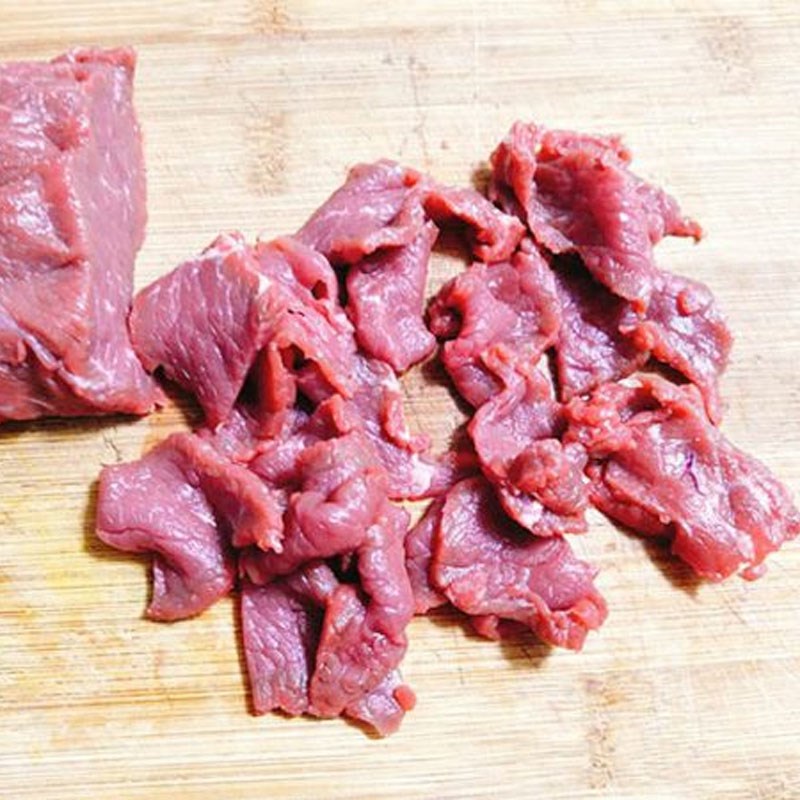
-
Prepare other ingredients
White radish peeled, cleaned, and cut into bite-sized pieces.
1/2 stalk of green onion cleaned and chopped.
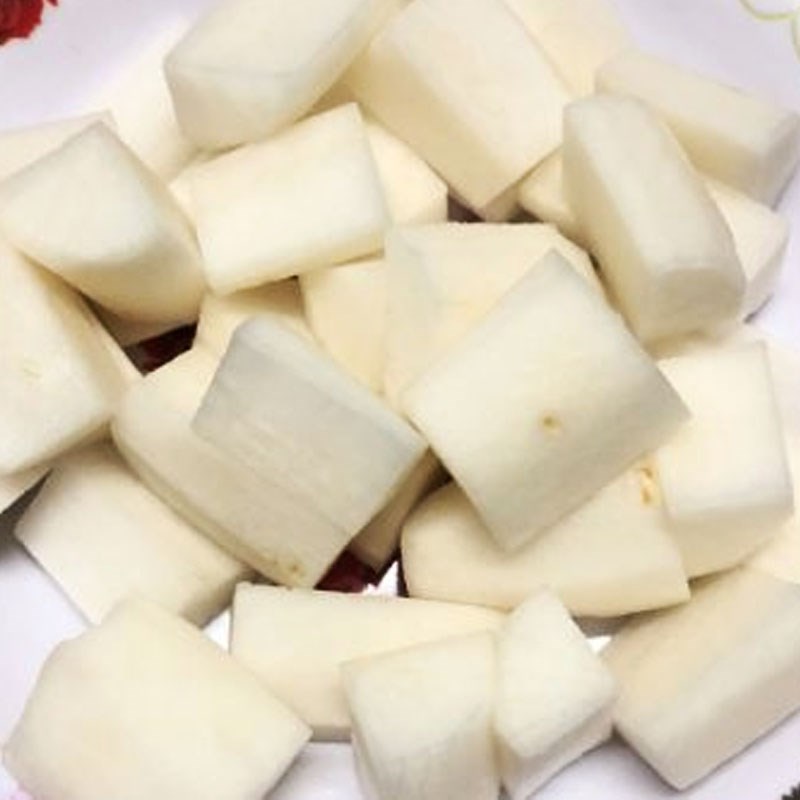
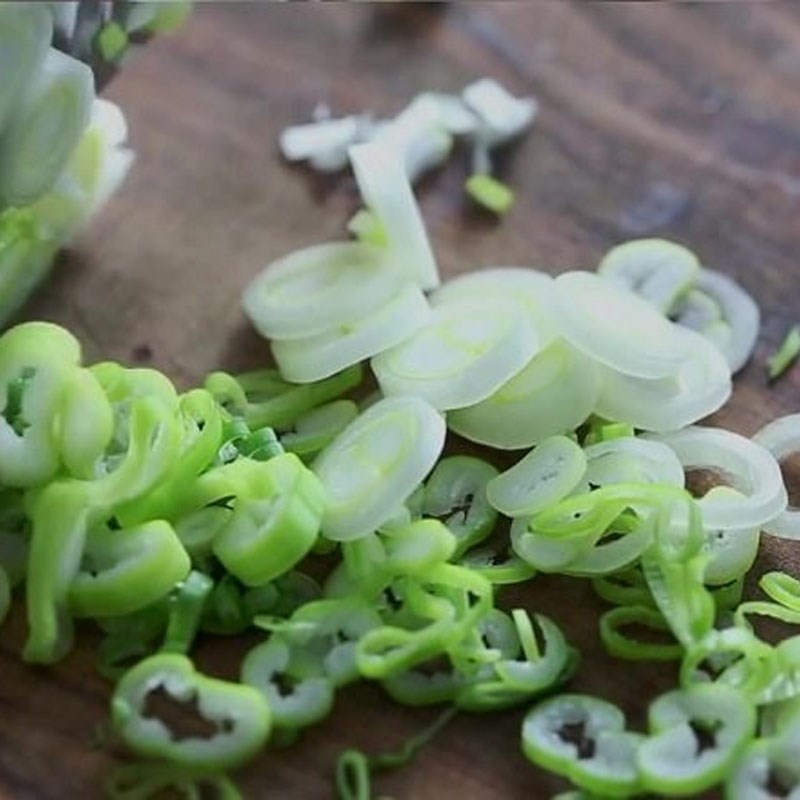
-
Blanch the beef
Beef cut into bite-sized pieces is put into boiling water to blanch until slightly rare, then removed.
Note: If you buy frozen beef, it usually won’t be fresh, so this is a quick thawing method to make the meat tender. It will also help eliminate the unpleasant smell of beef when cooking the soup.
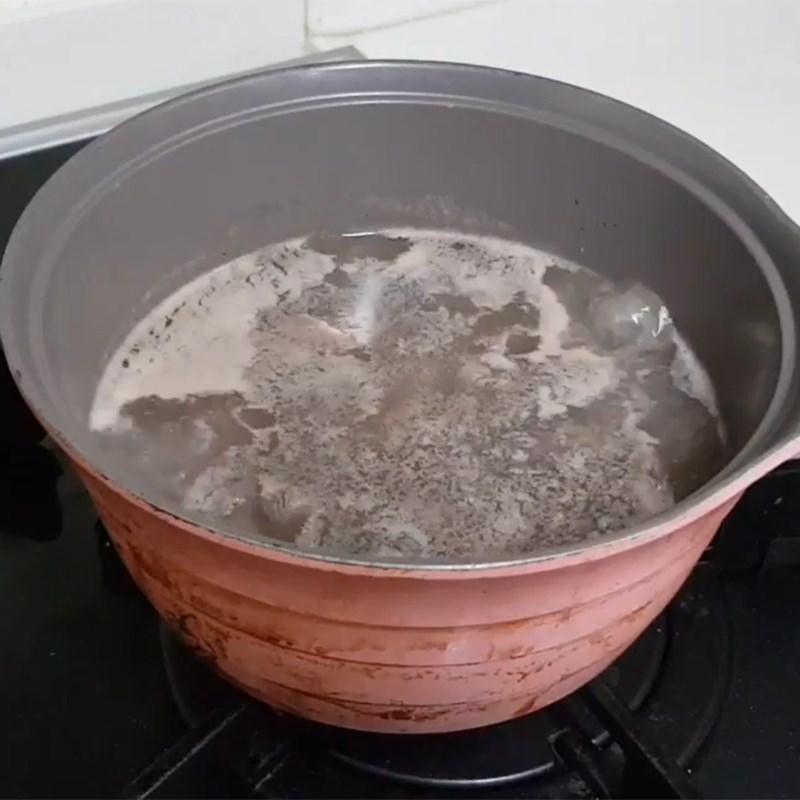
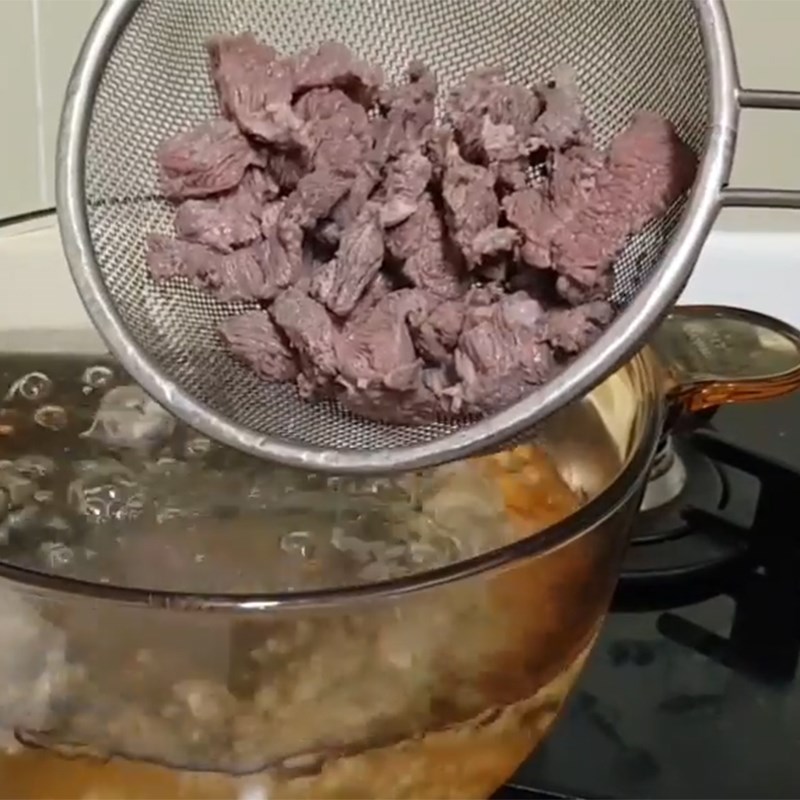
-
Cooking the Soup
Boil about 1.5 liters of water, add the briefly blanched beef into the pot and simmer for about 15 minutes.
Add 1 teaspoon of white wine and the prepared radish into the pot. Continue to simmer until the radish is soft. Season with salt and soy sauce to taste, including 1 teaspoon of salt and 1/2 teaspoon of soy sauce.
When serving, just add chopped green onion and you can enjoy it.
Note: Do not use too much soy sauce as it will make the soup cloudy.
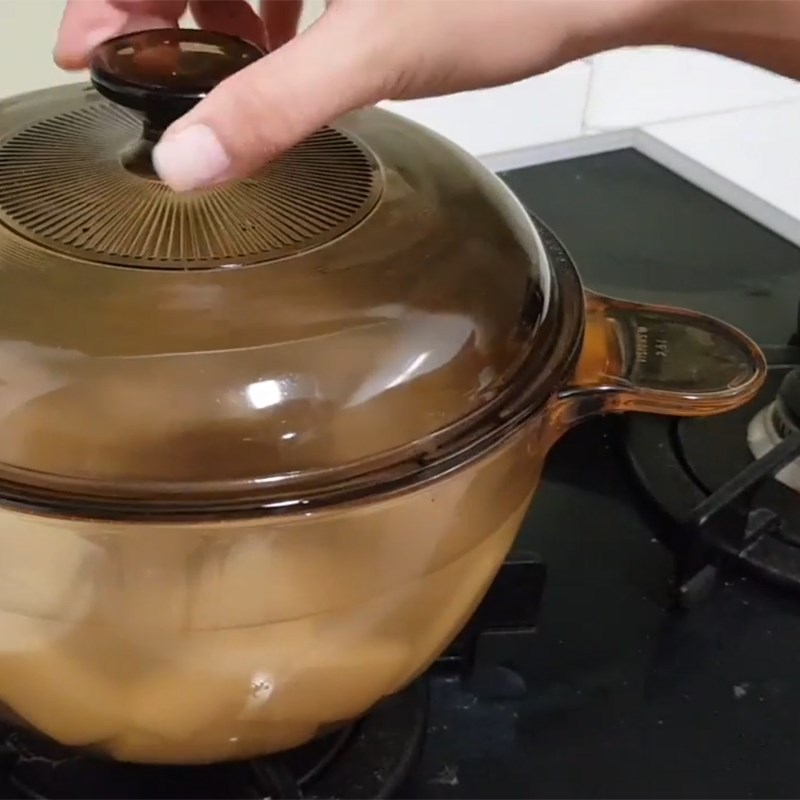
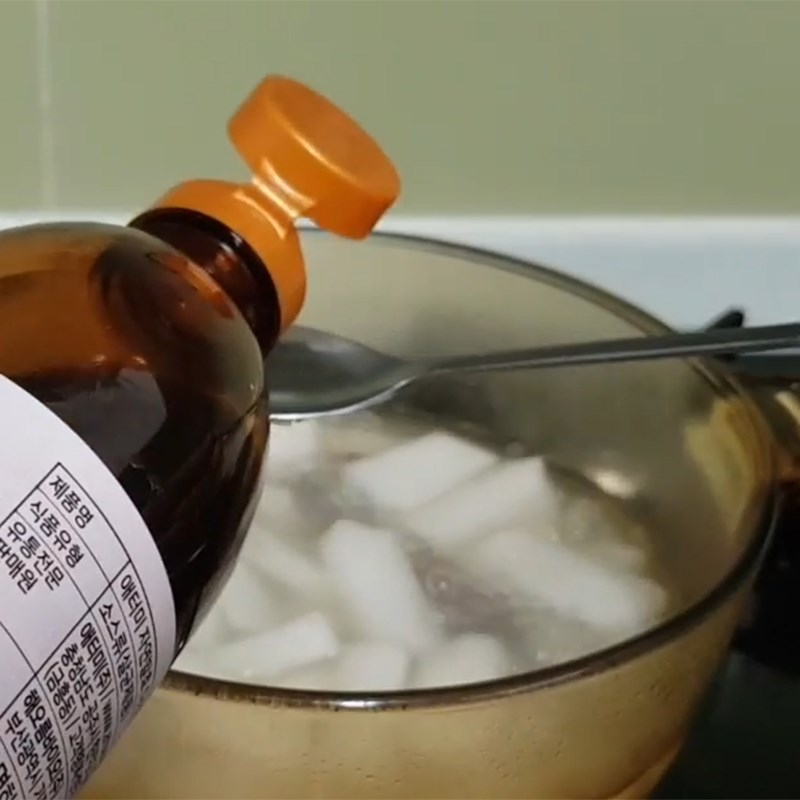
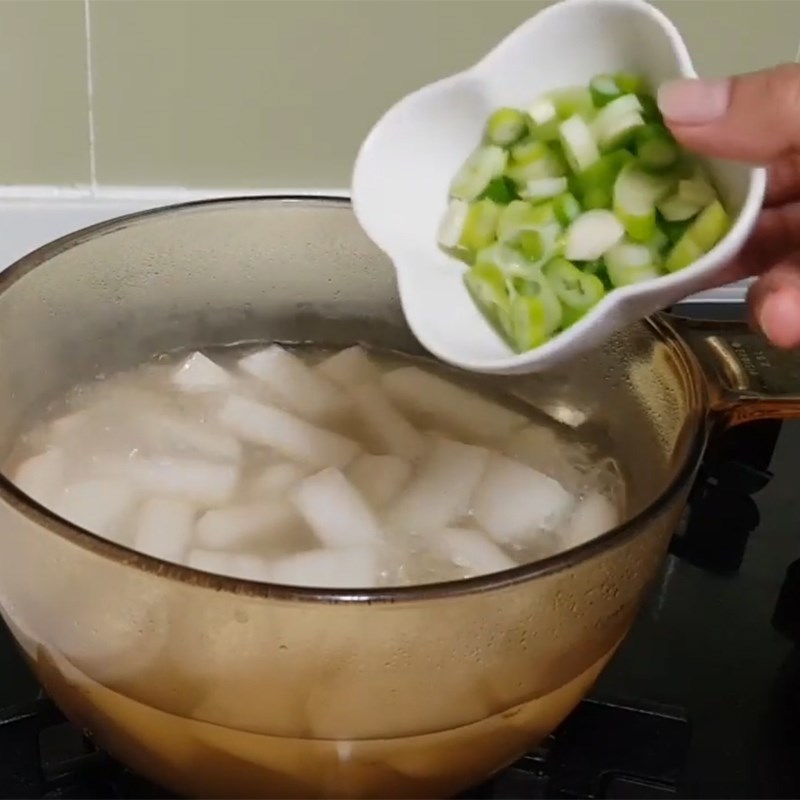
-
Final Product
The Korean Beef Radish Soup is complete. The rich flavor from the beef combined with the sweet taste from the radish creates a delicious and nutritious dish.
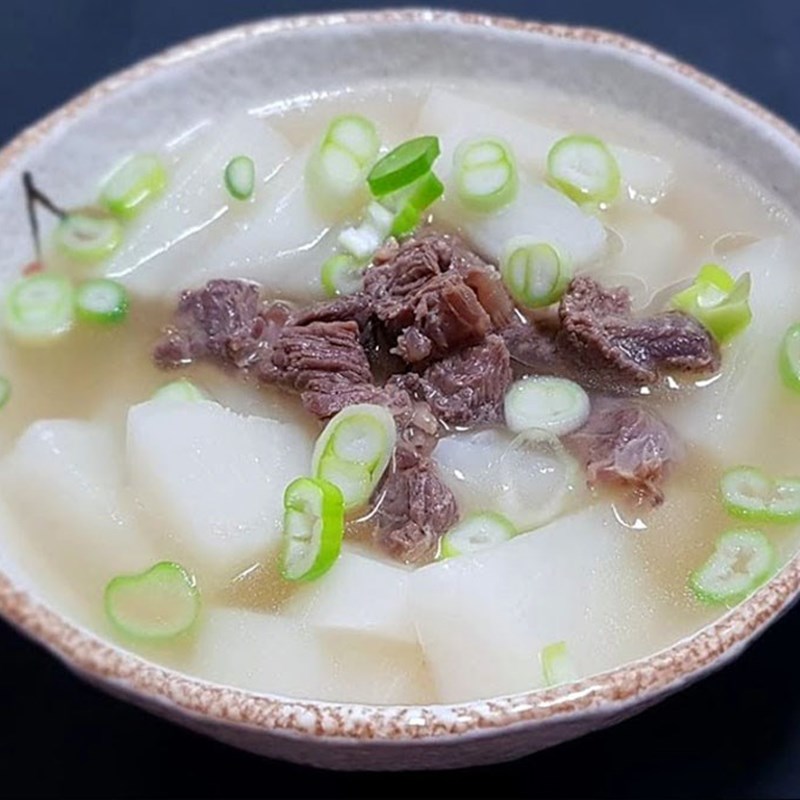
See more:
Korean radish beef soup is an easy-to-make dish that is also very easy to eat. This delicious and nutritious soup is waiting for you to showcase your skills for your family to enjoy. Wishing you success!
*Refer to images and recipes from the YouTube channel Choi UnSu Life in Korea
